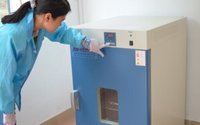What are the importance and application areas of corrosion resistance testing for metal materials?
Date:2024-08-29 14:00:00 Views:164
Metallic materialsCorrosion resistance testing is an important means of evaluating its performance in corrosive environments. The following is a detailed introduction to the importance and application areas of corrosion resistance testing.
1、 The importance of corrosion resistance testing
1. Ensure material reliability:
- Corrosion resistance testing helps determine the corrosion resistance of metals in specific environments, ensuring that they will not fail due to corrosion in practical applications.
2. Extend service life:
- By evaluating and optimizing the corrosion resistance of materials, the service life of metal components can be significantly extended, and maintenance and replacement costs can be reduced.
3. Improve security:
- In critical applications such as aerospace, chemical, and marine engineering, corrosion of metal materials can lead to serious safety hazards. Corrosion resistance testing can help identify risks and take preventive measures.
4. Meet industry standards:
- Different industries have specific requirements for the corrosion resistance of materials, and corrosion resistance testing can ensure that materials comply with relevant standards and specifications.
5. Optimize material selection:
- By comparing the corrosion resistance of different materials under the same conditions, engineers can choose the most suitable material to improve the overall performance of the product.
6. environmental protection:
- Understanding the corrosion resistance of materials can help reduce environmental pollution caused by material failure and promote sustainable development.
2、 Application of Corrosion Resistance Testing
1. Architecture and infrastructure:
- In infrastructure such as bridges, tunnels, and high-rise buildings, corrosion resistance testing ensures that the metal materials used can withstand the effects of environmental factors such as moisture, salt spray, etc.
2. Chemical and petroleum industries:
- In chemical reactions and petroleum extraction processes, metal equipment is often exposed to corrosive media, and corrosion resistance testing ensures the long-term stable operation of the equipment.
3. oceanographic engineering:
- In the marine environment, metal materials face corrosion from saltwater and biological attachment. Corrosion resistance testing helps to select suitable materials and ensure the safety of marine structures.
4. Automotive industry:
- Automotive components need to resist the erosion of rainwater, salt, and other corrosive substances, and corrosion resistance testing ensures the durability and safety of the car.
5. Electronic and electrical equipment:
- Corrosion resistance testing can prevent electrical failures and performance degradation caused by corrosion in electronic components and electrical equipment.
6. Aerospace:
- The aerospace industry has extremely strict requirements for materials, and corrosion resistance testing ensures the reliability of materials under extreme conditions.
3、 Summary
The corrosion resistance testing of metal materials plays a crucial role in multiple industries. By evaluating and optimizing the corrosion resistance of materials, not only can the reliability and safety of products be improved, but also their service life can be extended and maintenance costs can be reduced. With the development of technology, the methods and standards for corrosion resistance testing are constantly improving, providing a more scientific basis for material selection and application.




 Weixin Service
Weixin Service

 DouYin
DouYin
 KuaiShou
KuaiShou





















